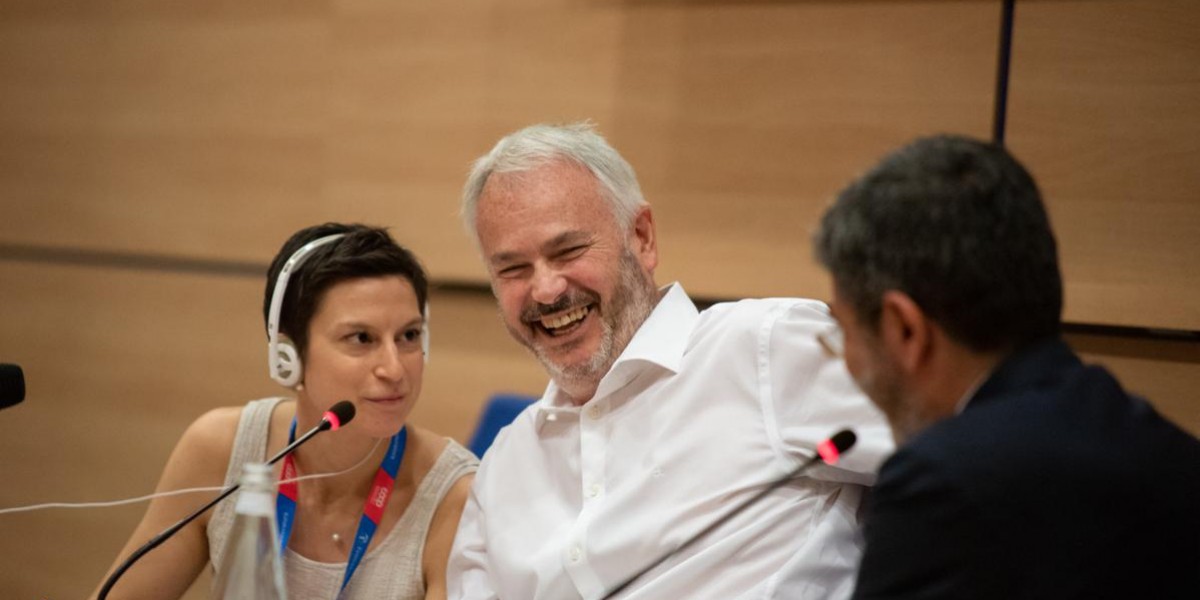
Tim Marshall and Carlo Annese investigate one of the most pressing issues of modern times
Direct, bold, and blunt: Tim Marshall embodied the qualities that he calls for in politicians in his appearance at Festivaletteratura, interviewed by Carlo Annese, to discuss current international politics, especially migration from Africa to Europe. Marshall is the creator of the website The What and the Why and the author of Prisoners of Geography: Ten Maps That Explain Everything About the World and Divided: Why We're Living in an Age of Walls, as well as having extensive journalistic experience.
Marshall called for open conversation about immigration and border control. The message of his book is that politicians must make a choice about immigration, explain it, provide practical solutions and explanations for how they will financially support this decision and, most importantly, must maintain a strong sense of humanity. “To turn humanitarianism into criminality is wrong,” Marshall avers, but we need alternative solutions that are clearly and logically explained to the public. If a nation chooses to accept immigrants, it should also have a plan for how to manage that influx; and if a country denies these people, it should have a plan for helping the countries in need.
In public political discourse, it has become increasingly difficult to state one’s opinion clearly, as extremism has led to name calling and hasty categorisation. For example, if someone expresses resistance towards immigration, they are called racist, but Marshall points out that it is not always racism at play. Instead, it is often anxiety: people are anxious that somebody else will take their limited resources, leaving them without. This protective worry that others will take things from us is as old as human civilization itself. “People have been told they are racist when in fact they are anxious,” Marshall emphasizes. “If you call people who are anxious racist, you risk pushing them to the racist party.”
Marshall decries mindless fawning over the idea of globalisation. Intellectuals and economists speak about globalisation as though the rise of internet exchange brings the world closer together, but in fact this is a false sense of connection: “People mistake globalisation for the unity of humankind.” Exchanging goods online between the United States and China, for example, in no way brings the consumer any closer to knowing the worker. It is a false sense of unity. Borders are still very much alive, which is both good and bad. Annese and Marshall discuss the trend, particularly in Europe and in the United States, of politicians calling for physical walls. To this, Marshall responds that even if walls are built or ports are closed, people will still find a way to enter. Rather than a real barrier, politicians merely “enforce the wall in your head.”



